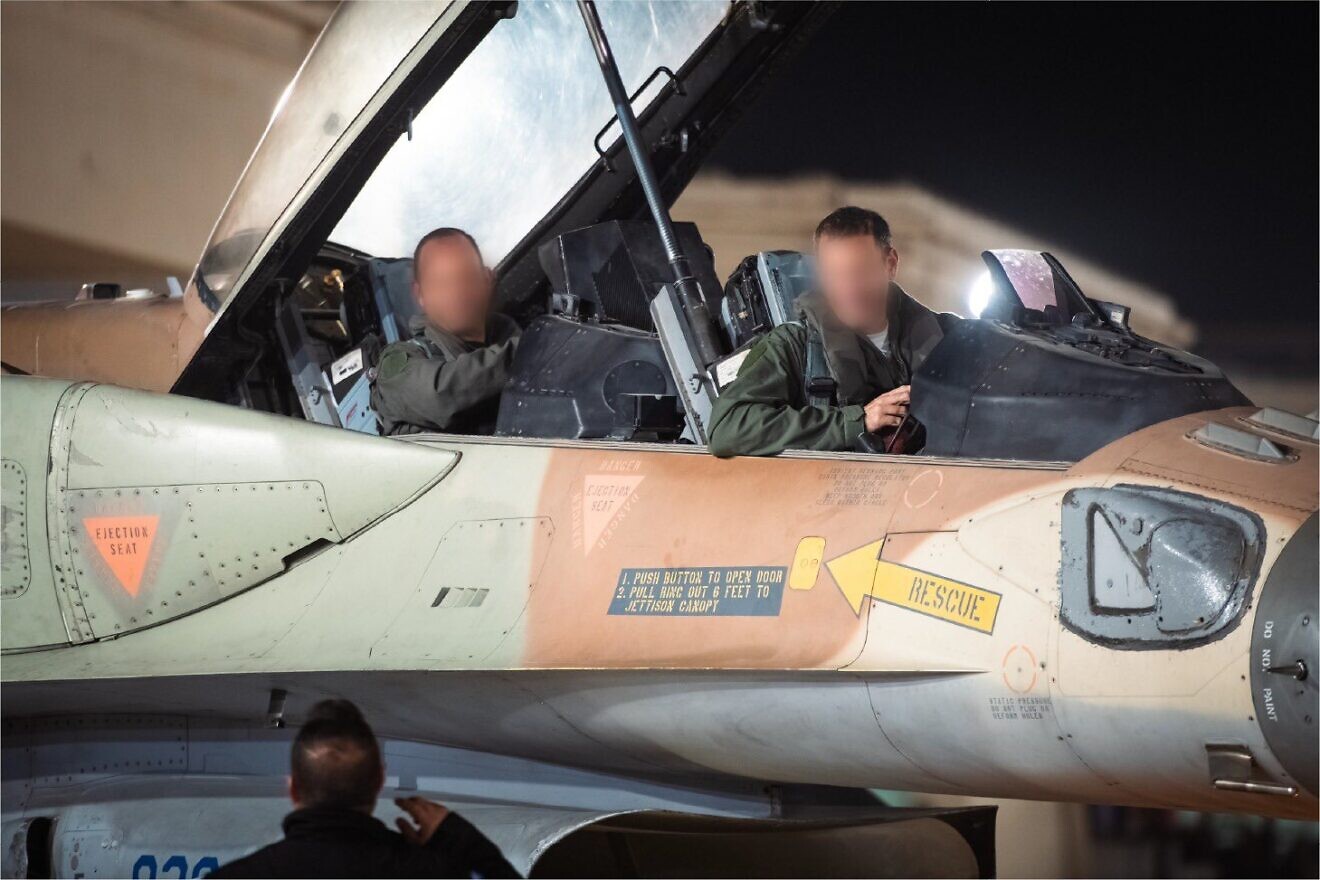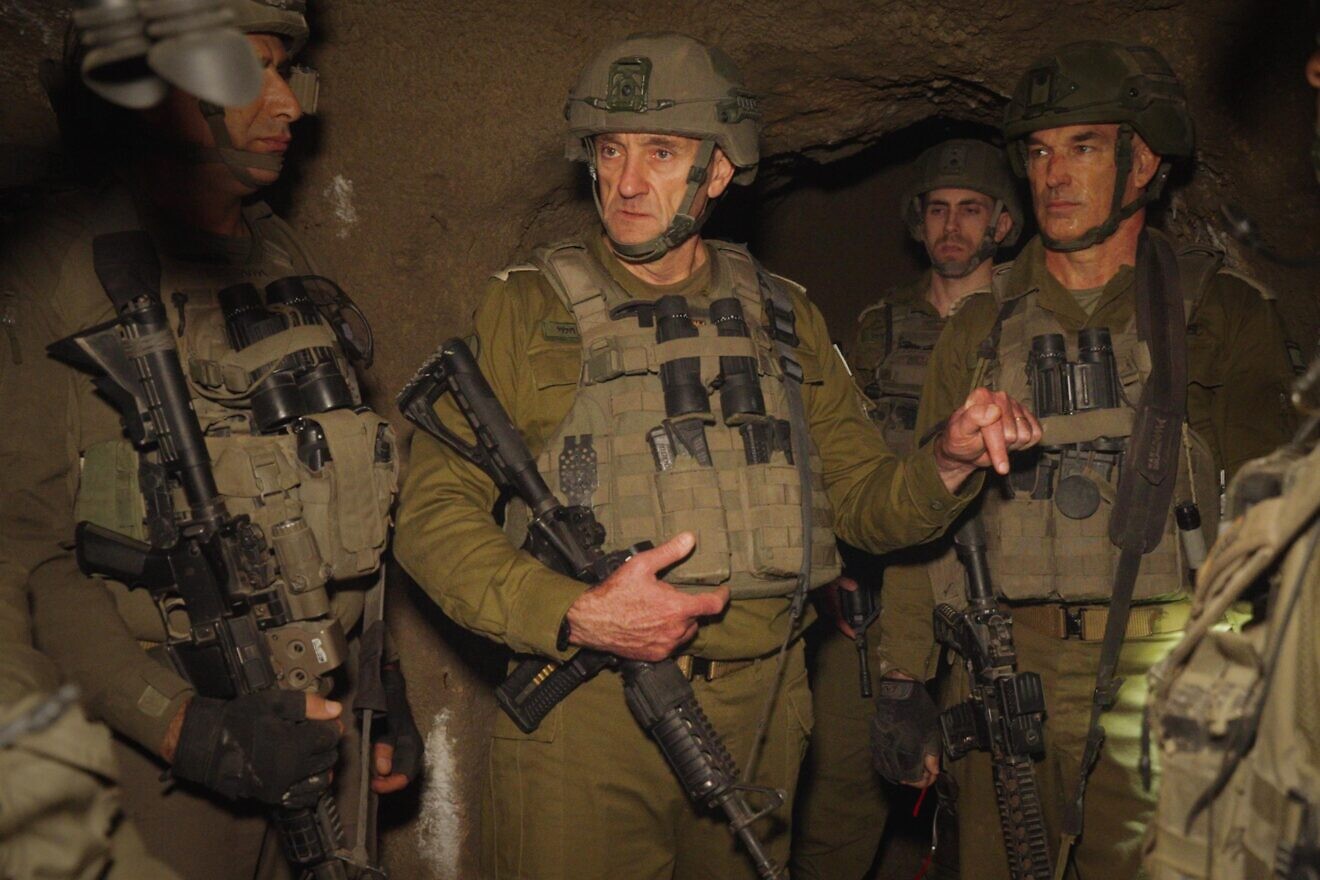Israel Defense Forces Chief of Staff Lt. Gen. Herzi Halevi on Tuesday warned that Jerusalem retains the capacity to strike strategic sites in Iran if the mullahs continue directly attacking the Israeli home front.
“If Iran makes the mistake of launching another missile barrage at Israel, we will once again know how to reach Iran, with capabilities that we did not even use this time, and strike very, very hard at both their capabilities and locations that we set aside for now,” said Halevi, referring to Israel’s retaliatory strikes on the Islamic Republic overnight Friday.
הרמטכ״ל בבסיס חיל האוויר ׳רמון׳: ״אם איראן תשגר טילים לישראל – אנחנו נדע להגיע עוד פעם לאיראן, עם יכולות שלא השתמשנו בהן״ pic.twitter.com/fxpmdCqCuC
— צבא ההגנה לישראל (@idfonline) October 29, 2024
According to the IDF, dozens of aircraft, including refuelers and spy planes, conducted “waves” of attacks over the course of a few hours across several regions of Iran. The targets included missile and drone manufacturing facilities and launch sites, as well as air-defense batteries.
“We did this for a very simple reason: because we may be required to do this again,” said Halevi on Tuesday. “This event is not over; we are still in the midst of it,” he added. “Looking forward, I say this to you: We are highly prepared across all fronts. We are operating in Lebanon, in Gaza, fighting terrorism in Judea and Samaria, and in other distant arenas.”

In his first public remarks since the Iran strikes, Israeli Prime Minister Benjamin Netanyahu on Sunday stated that the operation, dubbed “Days of Repentance,” was a success.
“This is an existential war, a war on seven fronts, against the axis of evil led by Iran,” said Netanyahu. “And in war, as in war—we exact a heavy toll on those who seek our lives,” he added.
“Three weeks ago, after we eliminated Iran’s top emissary, the arch-terrorist Hassan Nasrallah, Iran attacked Israel with hundreds of ballistic missiles. That attack failed. We promised then that it would be met with firmness—and in the early hours of Saturday morning, we fulfilled that promise,” said Netanyahu. “The air force struck across Iran, severely damaging its defense capabilities and its capacity to produce missiles aimed at us.”

In a phone call with Israeli Defense Minister Yoav Gallant on Saturday, U.S. Secretary of Defense Lloyd Austin conveyed Washington’s “ironclad commitment to Israel’s security and support for its right to defend itself,” according to Maj. Gen. Pat Ryder, the Pentagon press secretary.
Austin told Gallant that the United States was well prepared to defend its own soldiers and sites and its regional partners “and determined to prevent any actor from exploiting tensions or expanding the conflict in the region,” according to Ryder. “He told the minister that Iran should not make the mistake of responding to Israel’s strikes, which should mark the end of this exchange.”
For his part, Gallant thanked Austin for Washington’s “unwavering support for Israel’s defense against Iranian aggression,” mentioning the recent deployment in Israel of the U.S. Terminal High Altitude Defense (THAAD) aerial-defense system.
In April, Iran conducted its first-ever direct attack on Israeli territory, launching some 300 missiles and drones, the vast majority of which were shot down in a multinational effort.
The Financial Times reported on Tuesday that the Islamic Republic was set to drastically expand its defense budget in the upcoming fiscal year.
Iranian government spokesperson Fatemeh Mohajerani said that the regime had recommended to parliament a 200% increase in next year’s defense budget. Iran’s total defense spending this fiscal year was around $8 billion.


























